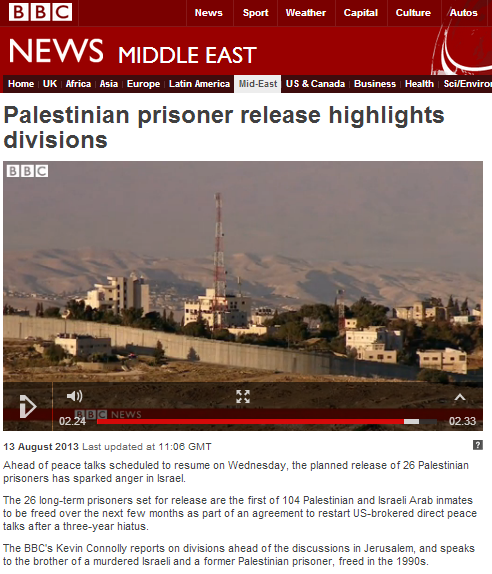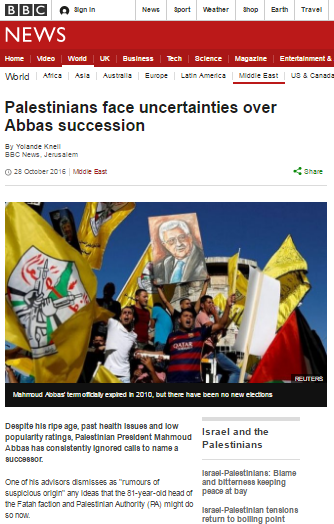Almost a week after their announcement, there has so far been no report published by the BBC regarding the new restrictions on foreign journalists introduced by the Palestinian Authority’s Ministry of Information and the Fatah-controlled Palestinian Journalist’s Syndicate.
Khaled Abu Toameh explains:
“Foreign journalists who ignore the latest restriction face arrest by Palestinian Authority security forces, said Jihad Qawassmeh, member of the Palestinian Journalist’s’ Syndicate.
He warned that any Palestinian journalist who helps international media representatives enter the Palestinian Authority-controlled territories without permission would face punitive measures.” […]
“The Palestinian Authority, which has often displayed a large degree of intolerance toward journalists who refuse to serve as a mouthpiece for its leaders, wants to work only with sympathetic reporters.
The timing of the ban is no coincidence. It came in the aftermath of US President Barack Obama’s visit to Ramallah and Bethlehem, where Palestinian protesters set fire to and trampled on his pictures. The protests seriously embarrassed the Palestinian Authority, especially because they underscored the large gap between its leaders and the street.”
As anyone who has read Stephanie Gutmann’s “The Other War” (a riveting account of the reality behind the foreign media’s reporting of the Second Intifada) will be aware, information coming out of the PA-controlled territories via foreign correspondents already passes through a series of ‘sieves’ including fixers and local editors before it reaches the general public. This new dictate by the PA will clearly exacerbate the filtering of the news which reaches audiences worldwide.
Khaled Abu Toameh adds:
“Particularly disturbing is that representatives of the international media have not protested against the Palestinian Authority’s threat to restrict the journalists’ work and even arrest them. One can only imagine the response of the international media had the Israeli authorities issued a similar ban or threat.
It also remains to be seen whether human rights organizations and groups that claim to defend freedom of press will react.
Once the ban goes into effect, officials of the Palestinian Authority Ministry of Information will find themselves serving as censors and editors of all news items concerning the Palestinians. Unless, of course, foreign journalists raise their voices and insist on their right to write their own stories from Ramallah.”
So far at least, the BBC appears to be avoiding informing its audiences of these new measures which will affect both the accuracy and impartiality of its reporting. Similarly, the Foreign Press Association – chaired by the BBC Jerusalem Bureau’s Paul Danahar – has yet to release a statement on the subject.




